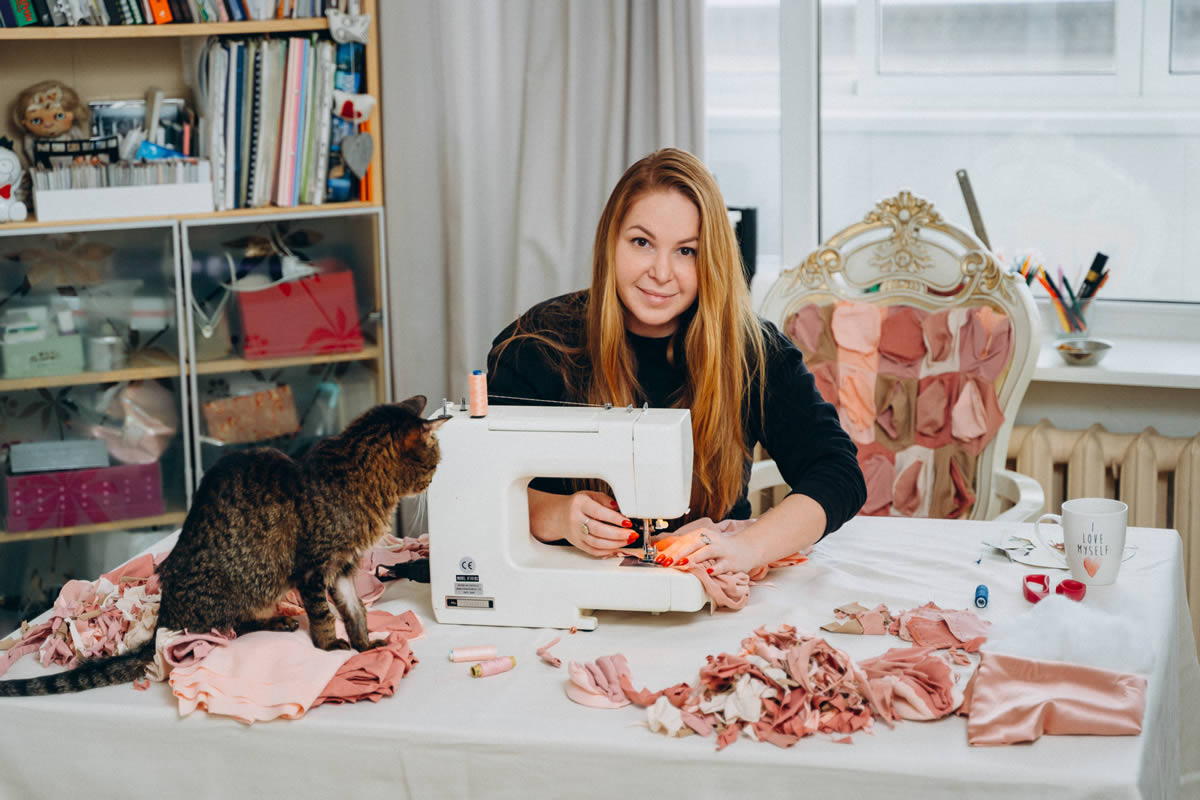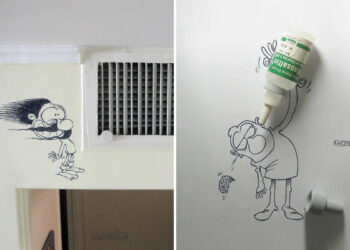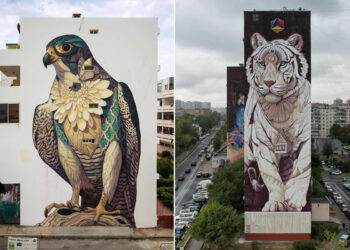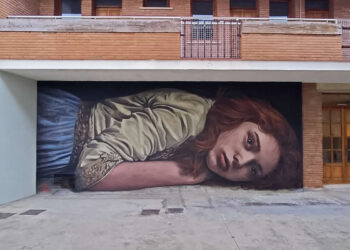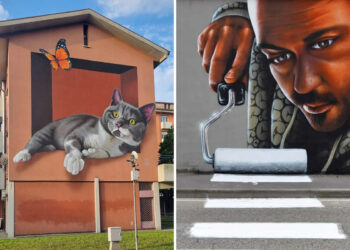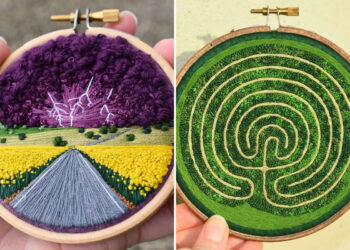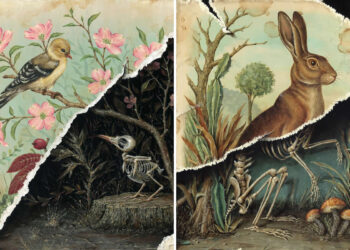Art is a mirror to society, reflecting its values, struggles, and aspirations. Alisa Sokolov’s art does more than reflect—it challenges and transforms. Few artists can claim to merge personal experience with societal critique as seamlessly as Sokolov. Her journey from a small Moscow suburb to international art stages underscores her commitment to using art as a vehicle for social change and dialogue. Through her boundary-pushing works, Sokolov invites viewers to engage with pressing social issues, from gender equality to political repression.
Early Life and Career Path
Born in the late Soviet Union in a small suburb of Moscow, Sokolov’s artistic potential was recognized early on. She received a scholarship to the Fine Art Department of the Odintsovo Children’s Art School, where she immersed herself in painting, drawing, composition, and sculpture over seven years. Her thesis on “Iconographic Types of the Image of the Mother of God” demonstrated her deep understanding of classical art forms.
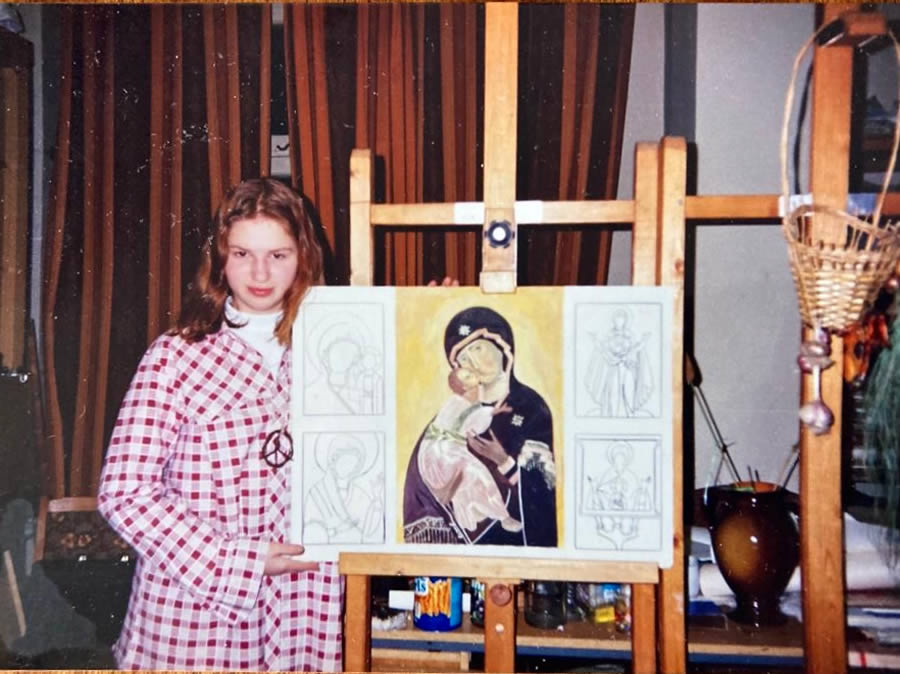
However, the financial strains following the Soviet Union’s collapse led her father to push for a more conventional career. Consequently, Sokolov earned a degree from the Law Faculty of Moscow State University and founded a media monitoring company. Later, she specialized in “Theatrical and Decorative Art” at Theater and Art College No. 60, focusing on “Artistic and Make-Up Design of a Performance.” This eclectic educational background provided her with a diverse skill set that would eventually shape her artistic journey.
Sokolov’s career trajectory included roles as a lawyer, entrepreneur, event organizer, space popularizer, and creative makeup artist (SFX). It wasn’t until the COVID-19 pandemic that she dedicated herself entirely to her true calling as a conceptual artist.
Artistic Practice and Notable Projects: Sokolov’s body of work spans acrylic paintings, digital collages, makeup art, and medical mask designs, showcasing her versatility. Among her most notable projects are:
Alive Dotted Pumpkin
In March 2020, the COVID-19 pandemic’s strict lockdown measures in Israel led to the cancellation of all her makeup projects. Seeking to find meaning in this disruption, she created “Alive Dotted Pumpkin” for the “IsoIsolation” Facebook art flash mob.
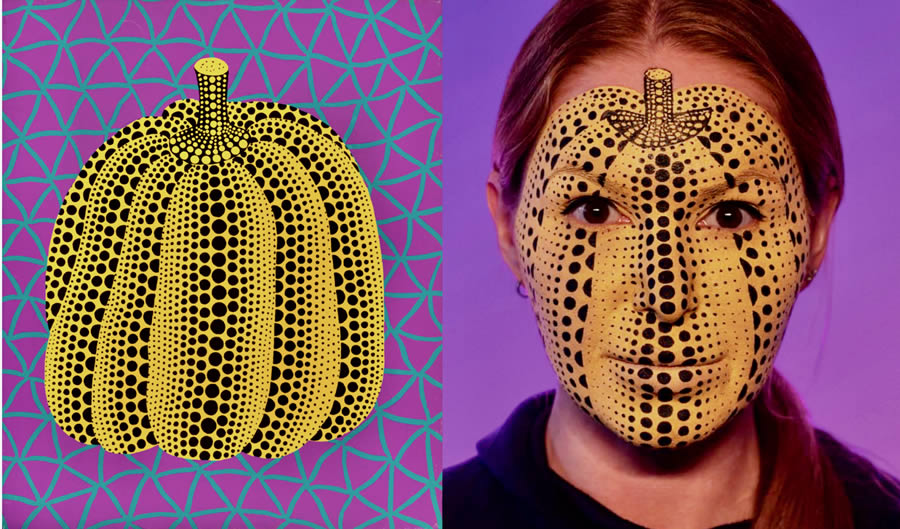
This project combines makeup artistry, conceptual research, and narrative storytelling to address mental health and creative expression. Inspired by Lewis Carroll’s “Alice’s Adventures in Wonderland,” Sokolov recreated Kusama’s “Midnight Pumpkin” on her face. Her extensive research into Kusama’s life informed a conceptual text paralleling Kusama’s struggles with her own artistic journey.
The project aimed to destigmatize mental disorders and foster dialogue on themes such as mental health, identity, and creative expression. The decision to debut “Alive Dotted Pumpkin” within the IsoIsolation art flash mob leveraged the platform’s role as a digital community during the pandemic. The project’s unveiling received overwhelmingly positive feedback, with notable engagement metrics, demonstrating the power of digital platforms to foster connections and creativity during social distancing.
We Don’t Talk About What We Don’t Have
In January 2021, the arrest of a prominent opposition leader in Russia drew significant attention and sparked widespread outrage. In response to these events, Sokolov created “We Don’t Talk About What We Don’t Have,” an immersive performance art piece using medical masks to symbolize both pandemic restrictions and the suppression of democratic rights. Masks bearing words like “freedom” and “legality” were worn during a protest near the Russian consulate in Israel, powerfully representing the stifled voices under oppressive regimes.
War and Peace
In May 2021, amid heightened conflict between Palestinians and Israelis, over 7,000 rockets were fired into central Israel. This harrowing experience inspired Sokolov to create “War and Peace,” a project that explores the dualities of human existence through anti-war collages and personal diary entries. Showcased at the “On the Edge!” exhibition in Penza, the project provided a raw commentary on the horrors of conflict and the quest for peace. Its multimedia approach resonated deeply with audiences, emphasizing the widespread repercussions of military violence.
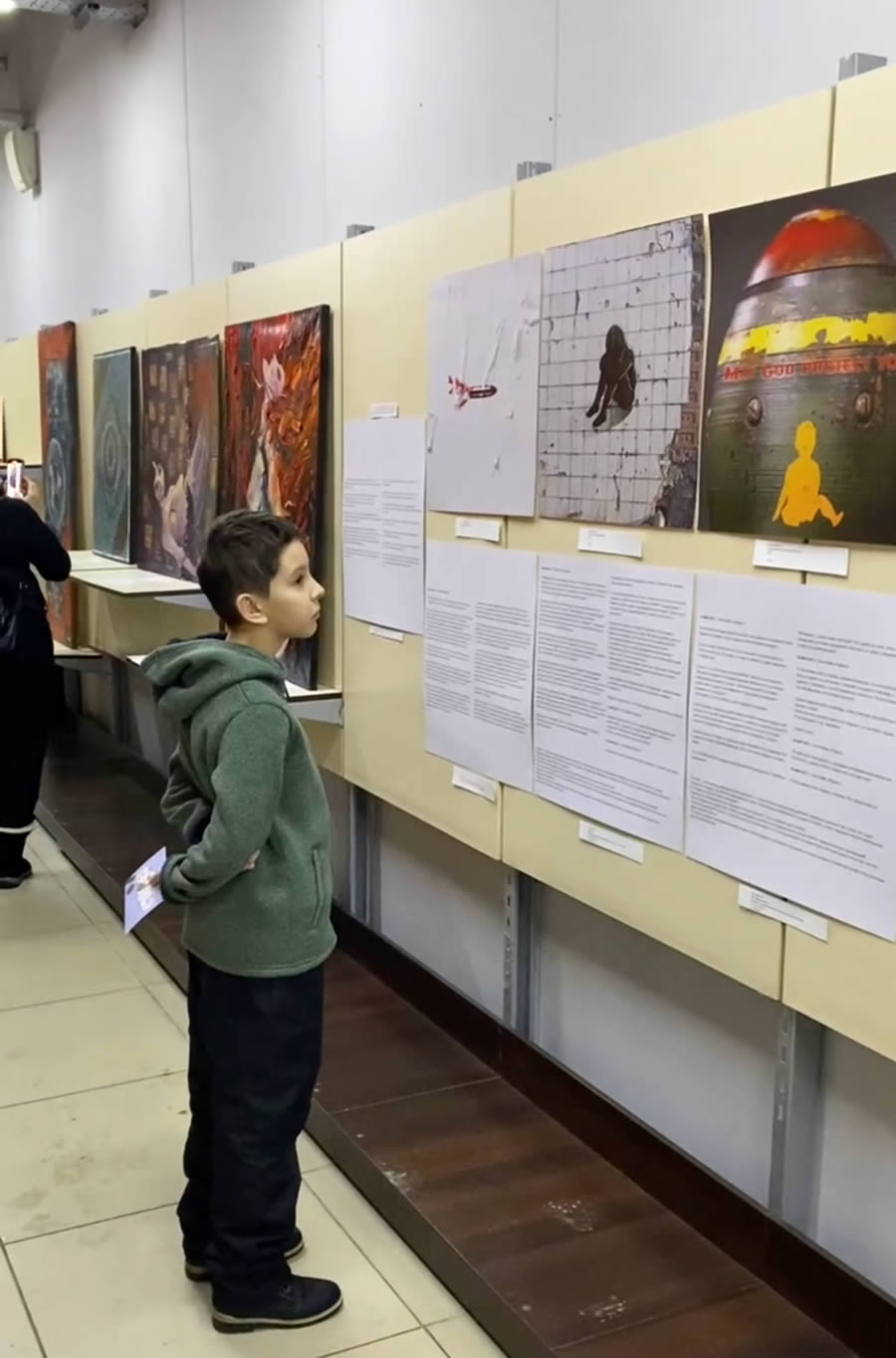
The project features a series of poignant anti-war collages accompanied by Sokolov’s diary entries that chronicle life during the rocket attacks on Tel Aviv. These entries provide a personal and intimate perspective on the conflict, blending visual and narrative elements to create a compelling narrative. The exhibition presented a profound insight into the harsh realities of living through conflict, challenging perceptions and urging reflection on the impact of violence.
Good Neighborliness
In April 2022, Sokolov responded to censorship of the Ukraine conflict with “Good Neighborliness.” This 65×65 cm acrylic painting features horizontal stripes of the Russian and Ukrainian national flags. The Ukrainian flag’s stripes depict a pastoral landscape, while the Russian flag’s red stripe symbolically drips blood onto the scene, creating a compelling dynamic effect. This piece, included in a series of anti-war postcards by the Shkizza Gallery in Jerusalem, underscores the devastating impact of war and the erosion of once-fraternal ties between the two nations.
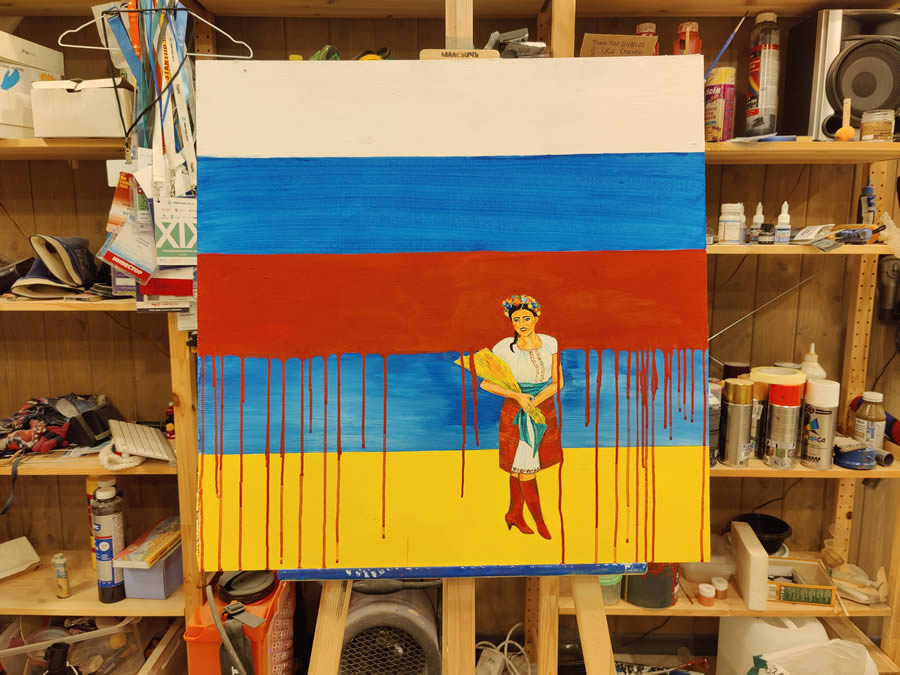
The artwork’s title, “Good Neighborliness,” reflects the once-popular belief in fraternal relations between Russians and Ukrainians. It portrays a young Ukrainian woman in traditional attire against the backdrop of a wheat field, symbolizing peace and prosperity. The red paint from the Russian flag flows onto the pastoral landscape like bloody streams, emphasizing the violence inflicted on a fraternal nation. The piece stands as a bold statement on the fragility of perceived harmonious relations and the tragic consequences of conflict.
Vulva Throne
“Vulva Throne,” Sokolov’s ongoing project, is a profound exploration of gender equality, body positivity, and cultural identity. Featuring vulva-shaped soft sculptures in 21 skin tones, arranged on an antique armchair, the piece challenges societal stigmas and celebrates the diversity of female genitalia. Incorporating natural freshwater pearls as a clitoris, Sokolov confronts the shame associated with perceived imperfections and champions women’s empowerment.
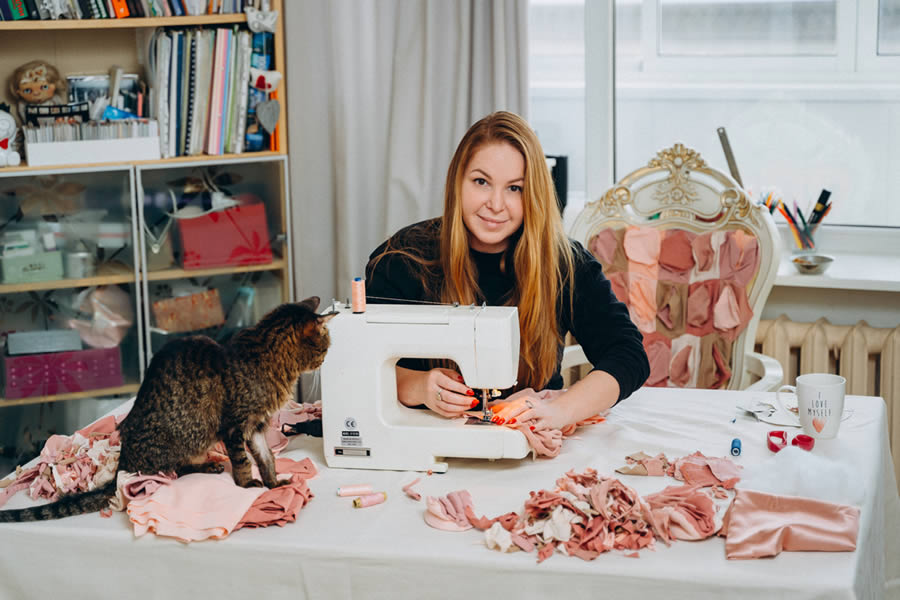
The project delves into themes of femininity, diversity, and vulnerability, using soft sculptures as a medium to explore these concepts. By celebrating the beauty and diversity of the female anatomy, Sokolov pushes back against the stigmatization and shame often associated with natural shapes. The “Vulva Throne” serves as a powerful commentary on societal norms and the importance of individuality.
Conclusion
Alisa Sokolov’s exceptional creativity and unique vision have been showcased at prestigious events and exhibitions worldwide, stimulating dialogue, raising questions, challenging assumptions, and presenting alternative viewpoints, transforming both audiences and society.
By merging contemporary art with socially relevant themes, Sokolov encourages reflection on gender roles and fosters a more inclusive view of human diversity. Her work continues to provoke thought and challenge societal norms, cementing her status as a pivotal figure in the contemporary art world. Sokolov’s bold and unique art blurs boundaries and has a transformative effect on both audiences and society, inspiring a more inclusive and accepting view of the human body and diversity. Her dedication to advocating for social change through art makes her an influential and significant artist of our time.
About the Author
Sophie Mitchell is a renowned art and cultural observer with a Master’s degree in Art Criticism from the University of Glasgow. She has written for numerous esteemed art publications, providing profound insights into the social contexts of modern artworks.

